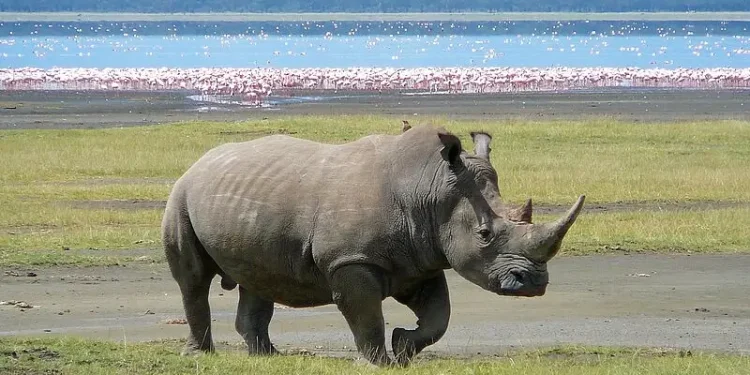The UK government, represented by H.E. Lisa Chesney, British High Commissioner, has reaffirmed its commitment to Uganda’s conservation efforts at a rhino naming ceremony at Ziwa Rhino Sanctuary.
This event marks the recovery of Uganda’s rhino population from local extinction in the 1980s to 48 white rhinos today, showcasing a successful collaboration between the Ugandan government, private sector, and conservationists.
Reviving Uganda’s Rhino Population
Uganda’s journey from having no wild rhinos in the 1980s to a thriving population of 48 white rhinos today is a testament to effective conservation strategies.
The transformation of Ziwa Rhino Sanctuary from a cattle farm into a safe haven for these majestic creatures underscores the dedication and collaboration among various stakeholders.
This initiative not only preserves biodiversity but also aligns with Uganda’s broader economic goals.
UK’s Role in Conservation
The UK has played an instrumental role in supporting Uganda’s conservation efforts, investing approximately £20 million since 1993.
This long-term commitment highlights the UK’s dedication to global biodiversity and sustainable development.
By facilitating initiatives like direct flights between Entebbe and Gatwick, the UK enhances tourism and trade ties, benefiting both nations economically.
Economic Opportunities for UK Businesses
The reestablishment of direct flights between Uganda and the UK opens new avenues for tourism operators and exporters of fresh produce.
It also presents opportunities for UK companies involved in conservation technology and sustainable agriculture.
These developments align with global environmental goals while fostering economic growth through increased tourism-related spending and cultural exchange.
Benefits for Travelers
- Simplified access to unique wildlife destinations like Ziwa Rhino Sanctuary
- Increased tourism-related spending boosts local economies
- Cultural exchange opportunities enhance mutual understanding
- Improved infrastructure benefits both tourists and local communities
- Support for global biodiversity contributes to broader environmental benefits
A Model for International Partnerships
This partnership serves as an exemplary model of how international collaborations can yield significant results in wildlife conservation.
The involvement of multiple sectors demonstrates that when nature is prioritized, remarkable achievements are possible.
Such partnerships not only protect endangered species but also contribute to sustainable economic development.
Additional Reading
Final Thoughts
The UK’s investment in Uganda’s conservation efforts exemplifies how international partnerships can drive positive change.
By supporting biodiversity preservation while enhancing economic ties through initiatives like direct flights, both countries stand to benefit significantly from this collaborative approach.
Discover more of More of Todays Top Breaking Government News Stories!
Sources: UK Government, Uganda Wildlife Authority, Nyungwe Forest National Park and British High Commission Kampala
Prepared by Ivan Alexander Golden, Founder of THX News™, an independent news organization delivering timely insights from global official sources. Combines AI-analyzed research with human-edited accuracy and context.








